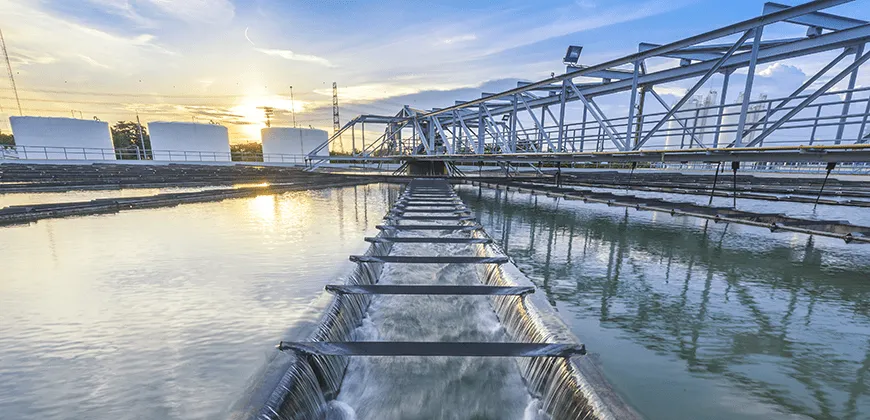Students learn how to manage large infrastructure projects

Water infrastructure projects are essential for ensuring the health and resiliency of communities. They are also large, complex and expensive. In Metro Vancouver alone, billions of dollars are currently being invested to upgrade water infrastructure, with committed budgets of $6 billion in capital spending over the next five years. And all of these projects must be done with an eye to the future, ensuring that they are both resilient to climate change and able to meet the needs of an anticipated one million more residents over the next 30 years.
Managing these complex projects requires a strong technical understanding of water infrastructure and knowledge of best practices in project management.
It also requires a consideration of the economic, social and environmental issues that must inform the entire process, from initial planning through to final implementation. Students in the Master of Engineering Leadership (MEL) in Integrated Water Management program have the opportunity to gain some of the skills needed to manage water infrastructure projects through an innovative industry-focused course taught by Dr. Cheryl Nelms, general manager of project delivery at Metro Vancouver. Highly respected in her field, Nelms oversees a multi-billion-dollar portfolio that involves thousands of employees, contractors and suppliers who are building out the region’s water infrastructure.
“This course addresses the technical realities of managing major water infrastructure projects, but we also focus on other critical aspects that are sometimes overlooked in professional training,” says Nelms. “This includes the environmental management of a project, permitting, regulatory requirements and First Nations involvement. We also dive into other issues that arise in project management relating to soft skills – communication, engagement, human resources, co-ordinating roles and managing the different interests of diverse stakeholders.”
The course introduces students to project delivery practices and the 10 key knowledge areas of project management according to the Project Management Institute. It then covers policy and implementation in project delivery, financing and funding, procurement, working with stakeholders (including meeting reconciliation objectives with First Nations), environmental and ecological concerns, and public engagement. Guest lecturers with expertise in law, finance, Indigenous partnerships, environmental issues, communications and managing major infrastructure projects share their insights on project management approaches and challenges. “I use case studies throughout the course as a learning tool,” says Nelms. “The problems we experience in project management are multifaceted and often have many different potential solutions. Case studies allow students to discuss ways to approach the challenges they may encounter in their careers.”
Students also have the opportunity to apply the theory they are learning in class to a practical challenge faced by a local organization.
As part of their final project, students work directly with an industry partner to develop practical solutions to a specific problem. These issues have included developing a dispute resolution process for the general conditions of a contract, improving the stakeholder identification process for a large infrastructure project and managing requests for information.
“This is an opportunity for students to work directly with an industry partner on a high-level issue,” says Nelms. “I’ve seen how valuable these collaborations are in other courses I’ve taught. They allow students to see the relevancy of their learning while expanding their professional network. Many MEL students are using the degree to shift their career, and these industry collaborations can help open doors.”
Nelms says that students come away from the course with a broad understanding of best practices in infrastructure projects and a strong foundation in project management language and practices.
“The portfolio of projects coming down the pipeline is considerable,” she says. “Not just in our region, but across the country. This course helps students develop the technical skills they’ll need to manage these projects.
The course also gives them practical leadership skills and – what I think is absolutely critical to the successful delivery of these large projects – insight into how to consider and incorporate the objectives of other decision-makers and stakeholders.”


